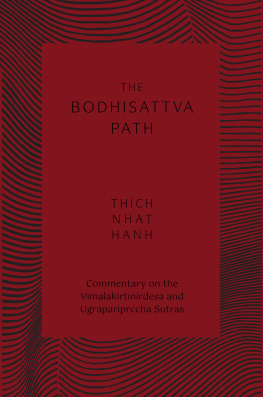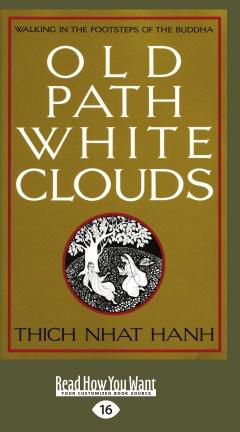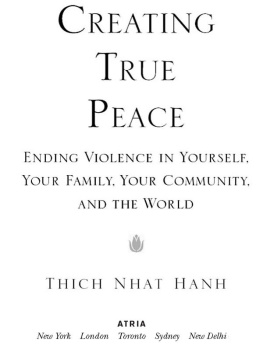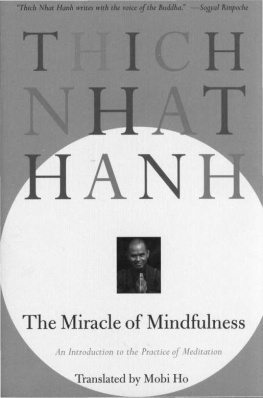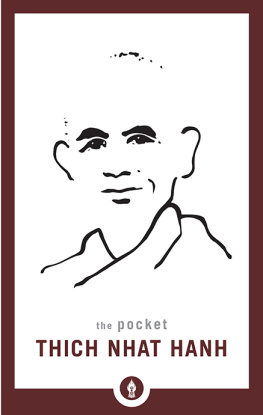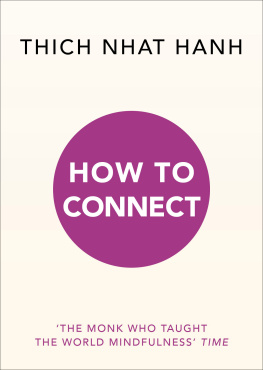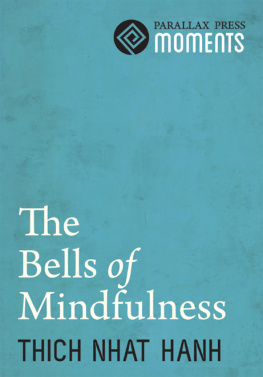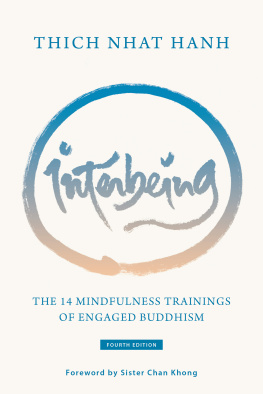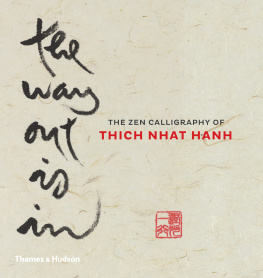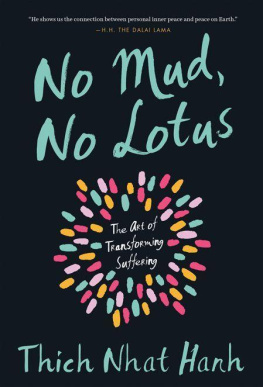The
Mindfulness
Survival Kit

CONTENTS




Mindfulness can help us survive and thrive, both as individuals and as human beings on this Earth together.

Mindfulness is the awareness of what is going on in us and around us in the present moment. It requires stopping, looking deeply, and recognizing both the uniqueness of the moment and its connection to everything that has gone on before and will go on in the future. Mindfulness can help us survive and thrive, both as individuals and as human beings on this Earth together. Mindfulness is a continual practicea path that helps us to transform our suffering and that brings happiness to ourselves and to others.
This book contains a modern, updated, and secular version of the Buddhas teaching of the Five Precepts, the Buddhas guidelines for an ethical life. In 1985, we revised the Five Mindfulness Trainings to reflect the way people were living at that time. But now, more than twenty-five years later, it is time to look at them again. We have to revise them in such a way that whenever we recite them we can see the practice of concentration and insight in them. In another twenty or thirty years time, perhaps we shall need to revise them again as the world continues to change and transform. The essence stays the same, but the form may be different.
My hope is that these Mindfulness Trainings can represent a Buddhist contribution to a global ethic, a way for the human species to sustain itself in these dangerous and difficult times. After almost seventy years of practice, I have found these Mindfulness Trainings can help relieve suffering and produce happiness by helping us generate the energies of mindfulness, concentration, and insight. The practice of these three energies can open the door to liberate people from the prison of their suffering.
The Chinese and Vietnamese word for religion is jiao, which means a tradition of teachings. In Eastern cultures, religion does not imply a belief in God. Tao is the Chinese word for path or Way. The Mindfulness Teachings are a wide path out of suffering, not necessarily connected with a particular religion. Buddhism was developed as a teaching path, rather than a religion. The first teaching the Buddha gave was to his five friends who used to practice self-mortification with him. That teaching, called the Setting in Motion of the Dharma Wheel, was to become the foundation of a new ethics and morality that consists of the Four Noble Truths and the Noble Eightfold Path. Ethics are principles of action that will reduce suffering and nourish happiness.
THE FOUR NOBLE TRUTHS

In his first teaching, the Buddha spoke of the Four Noble Truths. These are ill-being, the path leading to ill-being, well-being, and the path leading to well-being. The Fourth Noble Truth, the path leading to well-being, is called the Noble Eightfold Path. This is the path of the Eight Right Practices: Right View, Right Thinking, Right Speech, Right Action (of the body), Right Livelihood, Right Diligence, Right Mindfulness, Right Concentration. If we look deeply enough, these four truths contain everything we need to know about the nature of being human and the nature of the world around us. If we see the true nature of the Four Noble Truths, we shall see the true nature of the cosmos.
One thing you can always be sure of is that there is suffering in us and in the world. The Buddha built his teaching and practice based on that truth. We know that if suffering is there, something else must also be there and that is happiness. Just understanding and accepting this truth can bring us some relief. Our ill-being, our suffering, is not exactly our fault. Its the result of many causes and conditions, both collective and individualsuch as wrong perceptions, confusion, and strong emotions, which lead to unskillful actions of body, speech, and mind. That doesnt mean that happiness cant exist. We dont have to destroy suffering in order to have happiness.
When we accept the First Noble Truth (there is ill-being), we can practice two things. First, we can acknowledge the real suffering in us and around us. Second, we can learn to handle the suffering that we have acknowledged.
Acknowledging suffering doesnt mean that we have to see everything as suffering or that its enough to intellectually see that there is suffering. Identifying suffering as it is means that we dont run away from it and we take steps to be able to transform it. In order to transform suffering, we have to look deeply into it and find its roots. If theres tension in the body, we can identify it and discover its roots in order to ease it. If we know that the stress comes from the fact that we work too hard, for example, and are too distracted to dwell in the present moment, we can find a way to bring ease and rest into our day. If instead we ignore our stress, and just think that if we only work more we can take care of everything, then every day we add stress to stress and store it up in our body. If we continue like this, we make ourselves sick. If we start by being gentle with ourselves, giving ourselves time to return to ourselves in the present moment, we can begin to heal.
When we look into the First Noble Truth, the Second Noble Truth appears. The Second Noble Truth is the causes of our ill-being. When we look into ill-being deeply, we can see how it has developed. The Second Noble Truth illuminates the path that has led us to suffering.
One of the deepest causes of our suffering is our insistence on seeing reality in a dualistic way and our attachment to our beliefs. Ethics is the capacity to distinguish between right and wrong. Often, were caught in our beliefs about whats right and wrong. We get stuck in wrong views and lose our way. We may think, for example, That person wants to kill us. If we dont kill him first, he will certainly kill us. So we have to find a way to kill him first. But this kind of thinking may be based entirely on suspicion, fear, and wrong perceptions.
Wrong views lead to wrong thinking, and wrong thinking leads to wrong speech and wrong bodily action, whereby we bring violence to ourselves and to others. With wrong view, we may find ourselves living with wrong livelihood, earning our living by destroying the natural environment; by depriving others of the chance to live; or by lying and persuading others to buy our merchandise although we know that its harmful for their health. Wrong view also leads to wrong diligence, whereby we may work very hard day and night thinking that will bring us success and happiness, and we leave no time for our families and ourselves. In this way, we store up stress in our bodies and anxiety in our minds. Wrong view leads to wrong mindfulness. For example we may spend our days preoccupied with how to make more money or have more power and fame. We are never present in the here and the now because were always running after the object of our desire. Wrong view can also lead to wrong concentration, which means we focus on ideas and notions that cause us ill-being and we think of others as being completely unconnected to us.
Next page

